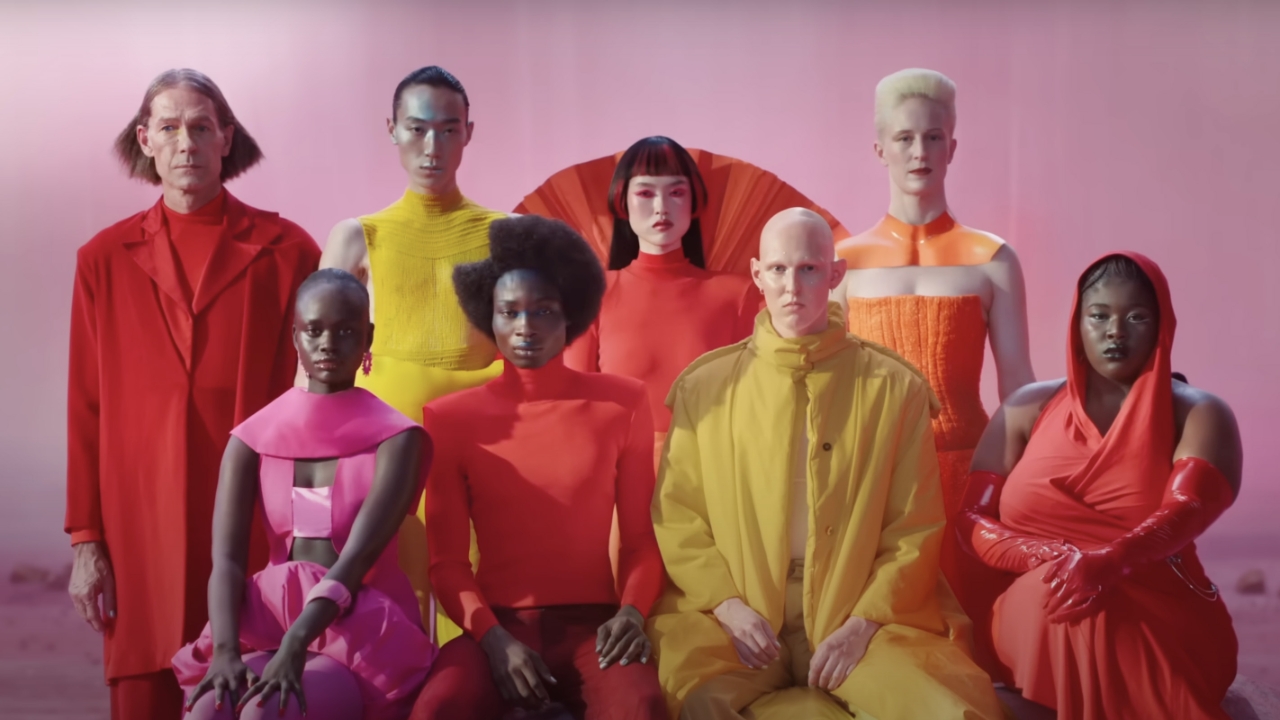Companies forget that the relationship between an organisation and its customers, is effectively impersonal from their perspective, yet is personal from the customer's side. We relate to large and small vendors on the basis of a personal cocktail of trust, need, experience, and biases, wheras the big vendor (often) sees us as statistics and trends. Companies that ignore that reality are not much longer for this world.

Why Do Companies Keep Killing Themselves With Wokeness?
Jaguar has built some classic cars. The beautiful Mark 2 (driven by Inspector Morse), the E-Type with its racy curves, the XJS, and the gas-guzzling XJ-6. Synonymous with British style and quality (although the old models often broke down), the Jag is a household name, a brand built up over nearly a century. With history and tradition its primary selling point, the company has been the envy of other luxury carmakers – many of whom have sought to copy its enduring brand appeal.
The new Jaguar rebrand – which exchanged the leaping panther for a bizarre Hunger-Games-like advertising campaign – is the latest apparition of what has come to be called ‘corporate wokeism’. Following the original Jaguar mantra of its founder William Lyons who said that their cars would be “a copy of nothing”, the slogan of the brand overhaul is “copy nothing”.
Except that is precisely the opposite of what is happening. In its attempt to be seen as “exuberant”, “compelling”, and all about “fearless creativity”, its focus on grim androgynous models and complete lack of cars simply repeats a now-familiar vapid sexual fetishism to sell stuff. The Paris Olympics opening ceremony was even branded thus. It’s hardly avant-garde when everything looks the exact same.
Not only is this Zoolanderish buffoonery rather boring, it is also not very conducive to selling stuff. Once trusted brands such as Disney, Bud-light, Target, Gillette, Nike, Boeing, North Face, Wickes, Costa Coffee, Skittles – and many more – have paid a heavy price for their social justice virtue-signalling. “Go woke – go broke” as the saying goes. Except that despite incurring heavy losses and losing market share, none of these companies have actually gone broke. Not yet anyway.
So why do they keep doing it? Why, despite commercial disaster, do corporate executives keep trashing their established brands? They would doubtless say that their approach is born of market research. The stated business reason for the erasure of Jaguar’s heritage, and the abandonment of its customer base, is to move it into the ultra-luxury market by targeting young global elite buyers. The problem is that they have confused “bold” with “alienating” and the stock price is now collapsing.
While it might be helpful to present a long-winded cultural analysis on how secularism is ironically heralding forms of neo-paganism – yes, this weird transgender and transhuman imagery really is an example of the process of godlessness leading to idolatry leading to insanity as outlined in Romans 1 - with our limited page-space, a quick review of some fashionable acronyms and academic culture offers a more apt explainer.
ESG
Let’s start at the top and work our way down. Most consumers are unaware that Environmental, Social, and Governance (ESG) is the investing principle which now dominates much of what constitutes middle and upper management in Western commerce. Framed by climate-change discourse and the United Nations' ‘Sustainable Development Goals’ (SDGs), ESG involves an ideological commitment – by states and companies – to reorient businesses for social impact.
The international banking and finance sector drives this trend, making investment decisions based on ESG criteria rather than profitability, and thereby requiring companies to adopt ESG strategies. While these strategies can be wildly unpopular and financially ruinous, they have taken the place of what used to be called Corporate Social Responsibility (CSR), embraced by executives who see their role as ‘saving the world’ - something that used to be God’s job. To be fair, many likely comply for the career cache, or to engage in “greenwashing” – using marketing spin to appear ecologically conscientious.
DEI
At a government, company and institutional level, zealous ESG advocates push for the imposition of another three-letter acronym, DEI. Diversity, Equity (or Equality) and Inclusion comes from questionable (and yes, Marxist) philosophical origins, and is the drive to dismantle systemic racism, sexism, transphobia, and a myriad of other injustices and inequalities (except class of course, which is now passe). Spawning a veritable ‘training industry’ that might be better described as a racket, its stated goal is to change language and culture in order to deliver a ‘fairer’ society. These DEI precepts are so enshrined among our new elites that any employee who dares to go against them are often doing little more than committing professional suicide.
Why Are They Doing This?
And herein lies the deeper cultural problem manifest in the Jaguar rebrand – and explains why, despite its commercial disasters, corporate wokeism persists. Higher education is both a key site for instilling values and an incubator for future leaders. Like previous generations of leaders, the current Professional Managerial Class (PMC - just so you can enjoy another three-letter acronym) are the products of the management sausage-machine that is our university system. And naturally they carry their views and values into their careers. Unlike previous generations, however, they are generally ill-equipped to discern reality, and their views and values are distinctly antagonistic to other views and values. Following almost a century of academic secularisation, the canon of most Western universities is now saturated with postmodern ideas which are nonsensical, impractical and ultimately anti-human – which works its way out in DEI policy.
In 1987, Alan Bloom’s The Closing Of The American Mind showed how militant ‘nonjudgmentalism’ - dogmatically taught by universities - was destroying Western institutions. Then in 2018, the intellectual impact of this phenomenon was explored by Jonathan Haidt and Greg Lukianoff in The Coddling of the American Mind which confirmed that universities are spectacularly failing to prepare people for the realities of adult life, often to the serious mental detriment of the students themselves.
Recounting the visceral assault of political correctness on higher education that compelled him to co-write the book, Haidt said: “It was as if a flock of demons was unleashed upon the world, and the first place they flocked to was American college campuses.” This was followed in 2023 by Greg Lukianoff and Rikki Schlott publishing The Canceling of the American Mind which lists the devastating effects of “cancel culture” on institutions that require viewpoint diversity to function. They were motivated to write because:
. . . the disease has metastasized and spread far beyond universities. It now infects journalism, the arts, non-profits, K-12 education, and even medicine. Show me an organization where people are afraid to speak up, afraid to challenge dominant ideas lest they be destroyed socially, and I’ll show you an organization that has become structurally stupid, unmoored from reality, and unable to achieve its mission.
From the closing to the coddling to the cancelling of the minds of prospective leaders and managers, these landmark publications observed an accelerating “structural stupidity” in universities – a stupidity that is now feeding into society at large. Leaders schooled in intersectionality embrace deconstruction as fashionable. Progressivism is now equated with rebellion, disruption, and transgression. To be real is to rebel. To be riotous is to be righteous.
This philosophy is evident in Jaguar's head of brand strategy Santini Pietrosanti. Dressed in the language of innovation and inclusion, they dismiss what Jaguar’s forebearers built in favour of realising “what can be, unburdened by what has been”. The ideological rigidity of the new managerial class is perfectly illustrated by Jaguar's managing director, Rawdon Glove who called the public criticism of the rebrand “vile hatred” and a “wave of intolerance”.
Clearly the only way to fix this nonsense is total reform of higher education. It is a long-term project, but it is encouraging that, alongside the ridicule of the catastrophic Jaguar campaign, there are signs that a popular pushback has already begun. Executives at companies such as Walmart, Ford, John Deere, and Toyota have found the sense and courage to ditch DEI initiatives. As their trading figures recover, more will follow. In the annual TV advertisement competition between department stores in the UK, this year's wokefest offered up by Boots (a division of Walgreens) with the usual androgyny, fetishism, racialism etc. seems to have backfired by bringing a deluge of public scorn. Whereas the more traditional Christmas advert of the once-woke John Lewis store chain seems to have been received more favourably. Ultimately, the sales figures will tell, but the Jaguar debacle suggests that the cultural tide may be slowly turning.

